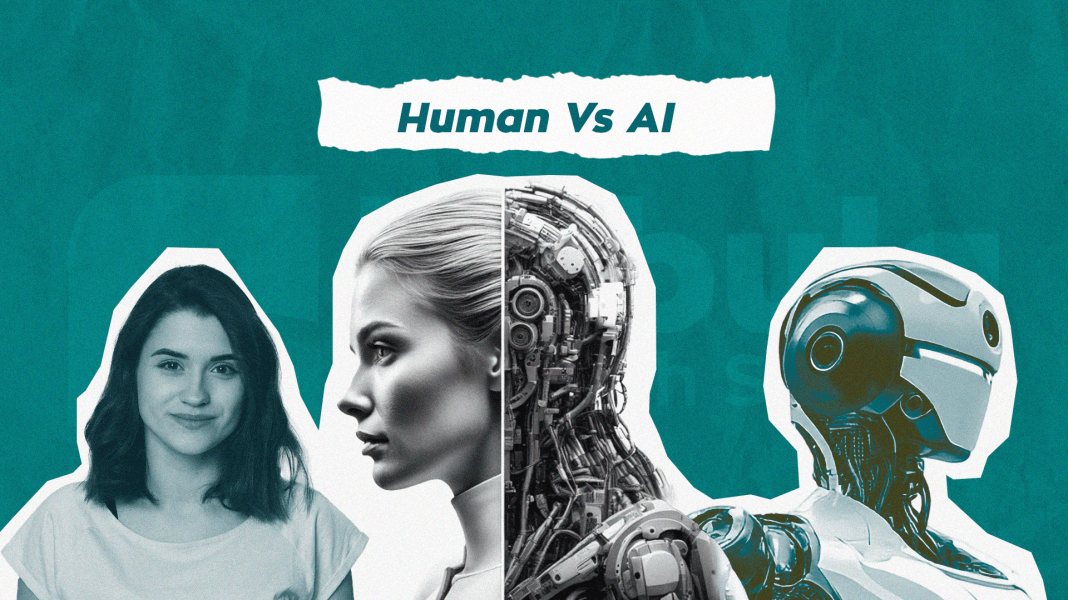 Design: Team Nebula
Design: Team NebulaHas this ever happened to you?
It's 10 p.m. You’re peacefully scrolling through your phone when suddenly, a text from your friend snaps you back to reality—there’s an assignment due at midnight. Panicked, you start scattering papers in a desperate search for answers, struggling to decrypt your own handwriting while the words in your textbook seem to dance before your eyes. Just when you think you’re not going to make it, you remember the fountain of knowledge at your fingertips—ChatGPT. Somehow, you manage to finish the assignment and submit it.
But then, a question lingers in your mind...
What am I going to do when I start working?
After all, the workforce demands efficiency, skill, and creativity. As if competing with other job seekers wasn’t enough, now you also have to worry about the rise of AI and potentially replacing human jobs. Given the circumstances, it’s more important than ever to understand how AI and automation are changing workplaces, how AI and automation are rapidly changing workplaces, what jobs to apply for and what skills to acquire and what skills will be crucial for the future job market.
With advancements in AI technology, the risk of job displacement and obsolescence is increasing. According to a study by the McKinsey Global Institute, rapid digitization and automation could cause around 14% of employees worldwide to switch careers by 2030. This raises an important question: which industries are the most vulnerable to these changes?
Jobs that include repetitive and predictable tasks e.g. data entry, manufacturing etc. are highly likely to be automated. We've all probably already witnessed AI reshaping the job market - you walk into a store, ready to check out, but instead of a cashier, it's a self-checkout machine. Or maybe you text an online business page and instantly you receive a perfectly worded text greeting you.
Other than Customer service representative, receptionists, a lot of companies nowadays use ai and automation for their accountings, bookkeeping as well as ai algorithm ensures a more secure and efficient entrance, analysis and storage of data. This also shows us a glimpse of how the field of research work is being revolutionized with the use of ai technology.
With the rapid growth of online sales, warehouse automation has become more crucial than ever. By now, most of us have heard about how Amazon has revolutionized warehouse automation to boost productivity and efficiency.
Despite the advancements in the world of AI some traditional jobs like - educators, healthcare professionals are quite unlikely to be replaced anytime soon. While some doors may close on certain jobs due to automation, new doors will open to fresh opportunities in emerging fields.
Jobs that focus on designing practical input, prompts for generative AI and refining the algorithm will give rise to demands for AI Prompt Engineer and AI Model Trainer. There will also be high demand for AI Ethics Consultancy to ensure the transparent and responsible use of AI. To integrate into various existing systems and integrate AI solutions into software and hardware systems, AI Integration Specialists will be in demand.
As these technologies continue to evolve, it’s essential for both workers and businesses to adapt to the changing landscape, and acquire the skills and systems needed to thrive in this new era. Acquiring both technical and soft skills are quite indispensable.
When it comes to technical skills, AI literacy, data analysis and digital marketing is important. To be able to conduct and operate an AI based system, having a clear understanding of the technology is vital. Similarly, in any AI driven field being able to analyze, evaluate and interpret data is necessary.
The workplace is changing, no doubt. As AI and automation become more common, some jobs will shift or disappear. However, this also opens up doors to new, exciting opportunities we haven't even thought of yet. The future of work will require us to be flexible, to keep learning, and to embrace new skills. It's a dynamic time, filled with potential for those who are ready to adapt and face the challenges. A new, evolving world is emerging, are you ready to be a part of it?
References
- Team, E. (2025, January 18). 20 emerging jobs created by artificial intelligence (AI) in 2025. RoboticsBiz.
- Talmage-Rostron, M. (2024, January 10). How Will Artificial Intelligence Affect Jobs 2024-2030. Nexford University Insights.
